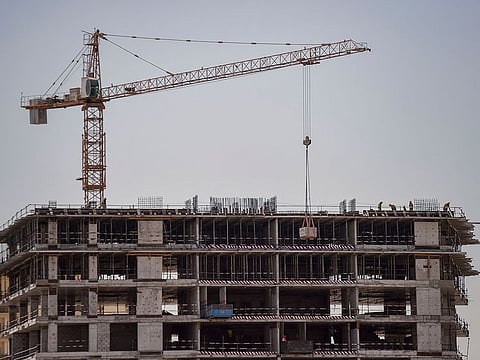Dubai’s Jebel Ali Free Zone is giving its Dh26.7b construction cluster a major lift
New landmark projects, supply chain gains to propel UAE construction sector fortunes

Dubai: For the UAE’s biggest port and terminal operators, creating industry-specific clusters is the way to future-proof economies. And Dubai’s Jebel Ali Free Zone is doing just that with its sharpened focus on the construction sector.
That ties in with forecasts that suggest the construction sector can expect a ‘solid recovery, reaching a value of Dh490.5 billion by 2027.
“JAFZA is continually attracting SMEs and multinationals owing to facilities such as customisable manufacturing plots, light industrial units/ warehouses, offices and ready-to-move-in showrooms, all spread over 3.4 million square metres,” the Dubai entity said in a statement.
The upbeat projections surrounding construction sector is shared by many in the industry. Next year should see Dubai and the UAE raise the tempo on a next round of infrastructure and urban expansion projects. The private sector too is chipping, with new offplan property launches helping. And some of these projects are going to be iconic in their own way.
JAFZA already hosts a sizeable construction-focussed cluster, valued at Dh26.7 billion. As of end 2021, the cluster housed more than 1,000 companies, accounts for approximately 30 per cent of Dubai’s sectoral trade of Dh92 billion.
“The Jebel Ali Free Zone has been a consistent contributor to the construction sector’s growth despite global inflation, increasing costs of construction, supply chain disruption, and legal constraints,” it said in a statement.
“With new landmark projects, recovery in oil prices and improving investor confidence, the UAE’s construction market, which witnessed a slump over the last few years, is set to experience significant activity. Growth will be driven by the government’s commitment to steer the sector’s progress and the country’s development agenda focused on strengthening the industrial, transportation, residential and energy infrastructure.”
Port lends a hand
It’s a given that Jebel Ali Port’s role is critical in raising JAFZA’s profile as a destination for suppliers to the construction sector. The largest port between Rotterdam and Singapore, the Jebel Ali Port can handle ‘all types of cargo’ through the 1.4 million square metres general cargo terminal.
“A seamless and transparent supply chain is key to transporting both raw materials and the end product,” the JAFZA statement said. “So, the port is ideal for building materials and construction companies.”
The quay length - at over 5 kilometres with 27 berths and a 1.2 million square metres General Cargo Yard - is i’deal for efficient export and import of building materials’.
“One of the biggest advantages is proximity to Jebel Ali Port, which offers construction companies access to over 3.5 billion existing and potential consumers in the MEASA region. This, coupled with the multimodal transportation model, has ensured the free zone supports 12,300 port customers.” - JAFZA
Sign up for the Daily Briefing
Get the latest news and updates straight to your inbox


